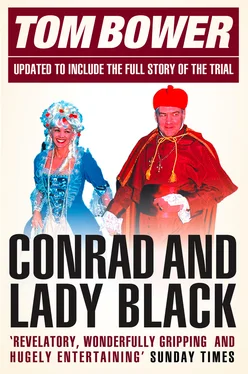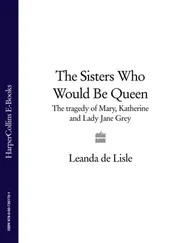Searching for other lost causes, Black alighted on the life and career of Maurice Duplessis, the dominating political leader of Quebec from 1936 to 1959. In popular opinion, the former Attorney General and Premier was condemned as a rude, drunken, corrupt dictator who ruled the province as a quasi-fascist in alliance with the Catholic Church. To resurrect Duplessis’s reputation, and in the process to rescue his own appalling academic record, Black registered at McGill University after finally graduating in law to produce a thesis for an MA degree about the rogue’s life.
Diligently, Black obtained exclusive access to Duplessis’s private papers, and fleshed out the background of the era by interviewing Duplessis’s contemporaries. In pursuit of the truth he travelled to Cameroon to meet one of them, Cardinal Paul-Émile Léger, an eloquent French Canadian missionary. For days they sat in the African bush discussing religion, poverty, life and the fight against disease. Entranced by Léger’s intellect, self-denial and altruism, Black could have been influenced by his understanding of morality, the poor and society. Instead, while he found a new hero, whom he would nominate for the 1973 Nobel Peace Prize (it was won by Henry Kissinger), he rejected the purity of Léger’s philosophy. The encounter in Africa was nevertheless a turning point. Inspired by Léger, and with the help of Bishop Carter of London, Ontario, he witnessed the power of the pulpit. Rather than being the enemy of authority, Black was transformed into a man of authority himself. The confirmation of his conversion was the conversation he began with God. In this continuing dialogue, Black would consult the Almighty and be reassured that whatever course of life he decided upon – any plan, ruse or conspiracy – would improve mankind. How far, he would ask, could he go without becoming unstuck? ‘If I go so far, will you still love me?’ His Maker’s approval was crucial if Black was to face down those who vilified him. And God always gave His approval. The integrity of Black’s credo was the life of Duplessis, who had also suffered personal abuse. Through that corrupt leader’s life, Black sought the answers to his own purgatory, and he was rewarded. His vilifiers, God assured him, would have to answer for their lack of faith in Himself.
On his return to Quebec from Africa in 1971, Black began his attempt to restore Duplessis’s reputation. ‘Much of what his critics decried as dictatorship and corruption was really a puckish love of farce,’ wrote Black, who credited Duplessis’s authoritarianism with building new roads and power plants. ‘Maurice Duplessis had too great a sense of the farcical to be arrogant,’ he added admiringly about a politician who accumulated an estimated C$100 million from corrupt payments. In an exhaustive seven-hundred-page text, Black suffocated the reader with endless quotations intended to support every argument in Duplessis’s favour. Unable to focus on the essential facts and crystallise both sides of the argument, the reader was exposed to a tidal wave of prejudice.
After reading Black’s thesis, Ramsay Cook, McGill University’s external examiner, criticised the apparent rehabilitation of Duplessis. He brushed aside the smokescreen of Black’s elephantine effort, and identified the flaws in his scholarship and the fallacy of his conclusions. Black’s belief that history was determined by leaders, not by mass movements or a battle of ideologies, was, Cook declared, as unconvincing as his undisguised admiration of dishonest power-brokers. In particular, Cook was unsettled by Black’s excusing of Duplessis’s criminal character, and he was minded to block the award of the MA. In order to secure his degree, Black had no alternative but to make the necessary alterations, although his anger about Cook’s ‘offensive’ opinions and ‘fairy-land view of Quebec’ reflected his intolerance of criticism. In 1976 the thesis would be published as a 684-page book. 25 Inevitably, Cook was asked by a newspaper, the Toronto Globe and Mail , to write a review. Unhesitatingly, he expressed his dislike of the book’s unstructured length and verbosity. ‘Anyone,’ he wrote, ‘who can endure this ramshackle volume to the end will likely conclude that though … Duplessis triumphed rather easily over most of his enemies, he has finally come a cropper in the hands of an admiring biographer.’ Black was incensed. ‘A slanted, supercilious little twit’, he called Ramsay, after personally confronting the newspaper’s publisher. Black’s modest manner hid violence towards anyone questioning his work; he damned anyone who questioned his sympathy as a ‘quasi-fascist Jesuit myth-maker’ or an ‘illiterate bootlicker’. 26 His self-esteem led him to neglect compromise in his arguments. To prove his superiority he even bought substantial quantities of his book in order to conceal its sluggish sales.
Similar aggression was directed against the Quebec nationalists after the Liberal Robert Bourassa won the 1970 election to become the province’s Premier. Contrary to his election pledges, Bourassa abolished English as an official language, discriminating against English Canadians. There was no future for Black in a state intent on separation from the country. Damning the ‘hypocrisy, narcissism and obfuscation’ of the French Canadians and mocking the placid English-speaking community as ‘gin-swilling grumblers of no consequence’, 27 he resolved, after eight years in Montreal, to return to Toronto. The notoriety he had gained after his expulsion from three schools had, he assumed, been forgotten. He arrived in the English-speaking city in July 1974 as a comparative stranger.
Conrad Black’s homecoming was opportune. Argus’s finances were deteriorating, and relations among the company’s ageing directors had become fraught. Bud McDougald and E.P. Taylor, while still enriching themselves at Argus’s expense, had become bitter rivals. Much to McDougald’s dissatisfaction, Taylor had been encouraging Paul Desmarais, the controller of the multi-billion-dollar Power Corporation, to make a bid for Argus. Desmarais’s failure, and the antics of Bay Street’s cowboys, were a foretaste of the turmoil once Argus’s old directors began to die. In anticipation of that future battle, Black resumed his relations with old friends including Fred Eaton of the department-store chain dynasty which he identified as ‘Canada’s ultimate establishment family’. 28 Their affection was mutual. ‘Jesus Christ,’ gushed Eaton, ‘Conrad’s got a spectacular mind working there.’ Invited to roast-beef lunches with Eaton were Galen Weston, Hal Jackman, and George Black’s old friend Douglas Bassett. Black spoke lengthily over wine and whisky about history and politics, and explained how he intended to extend his influence in politics by purchasing newspapers considered too small by Roy Thomson, the country’s dominant publisher and owner of The Times and Sunday Times in London. Systematically, Black and Radler telephoned owners with offers which, over the next three years, harvested twenty titles, including such local papers as the Alaska Highway News and the Daily News of Prince Rupert, all financed by loans secured against the Sherbrooke Record . Proudly, Black would assert that besides his original $500 investment, all his expansion consolidated in Sterling Newspapers, a new company, was financed by loans and profits. The Sherbrooke Record would be sold in 1977 for C$865,000, forty-eight times its purchase price eight years earlier, which did not account for $1 million profit used to buy other newspapers. During those years, the partners rarely met. ‘I know exactly what he’s going to do without going near what he’s doing,’ said Radler about Black. Their shared ambition for money – and Black’s for fame – cemented their relationship.
Читать дальше












